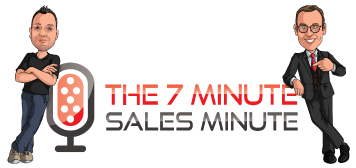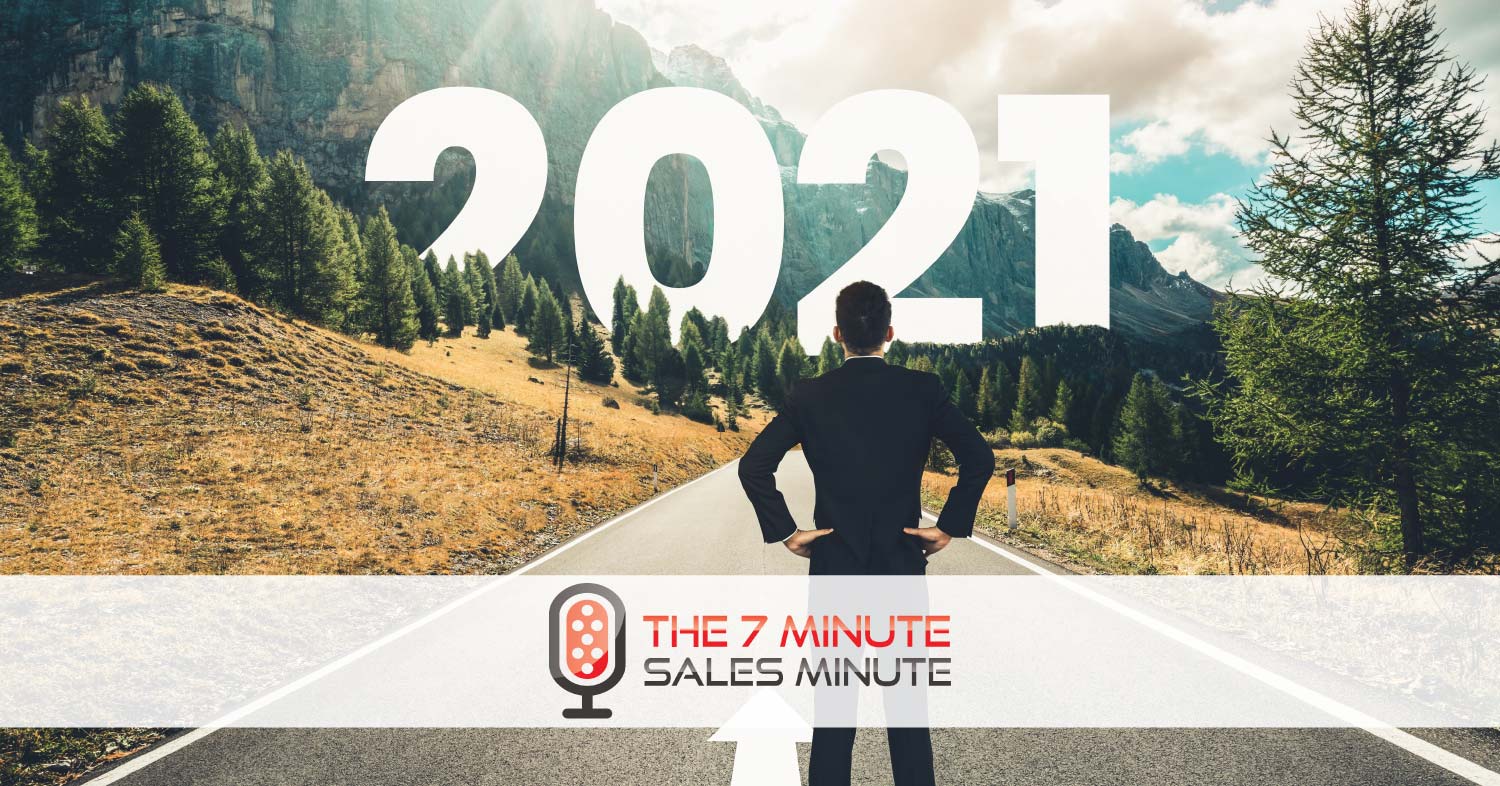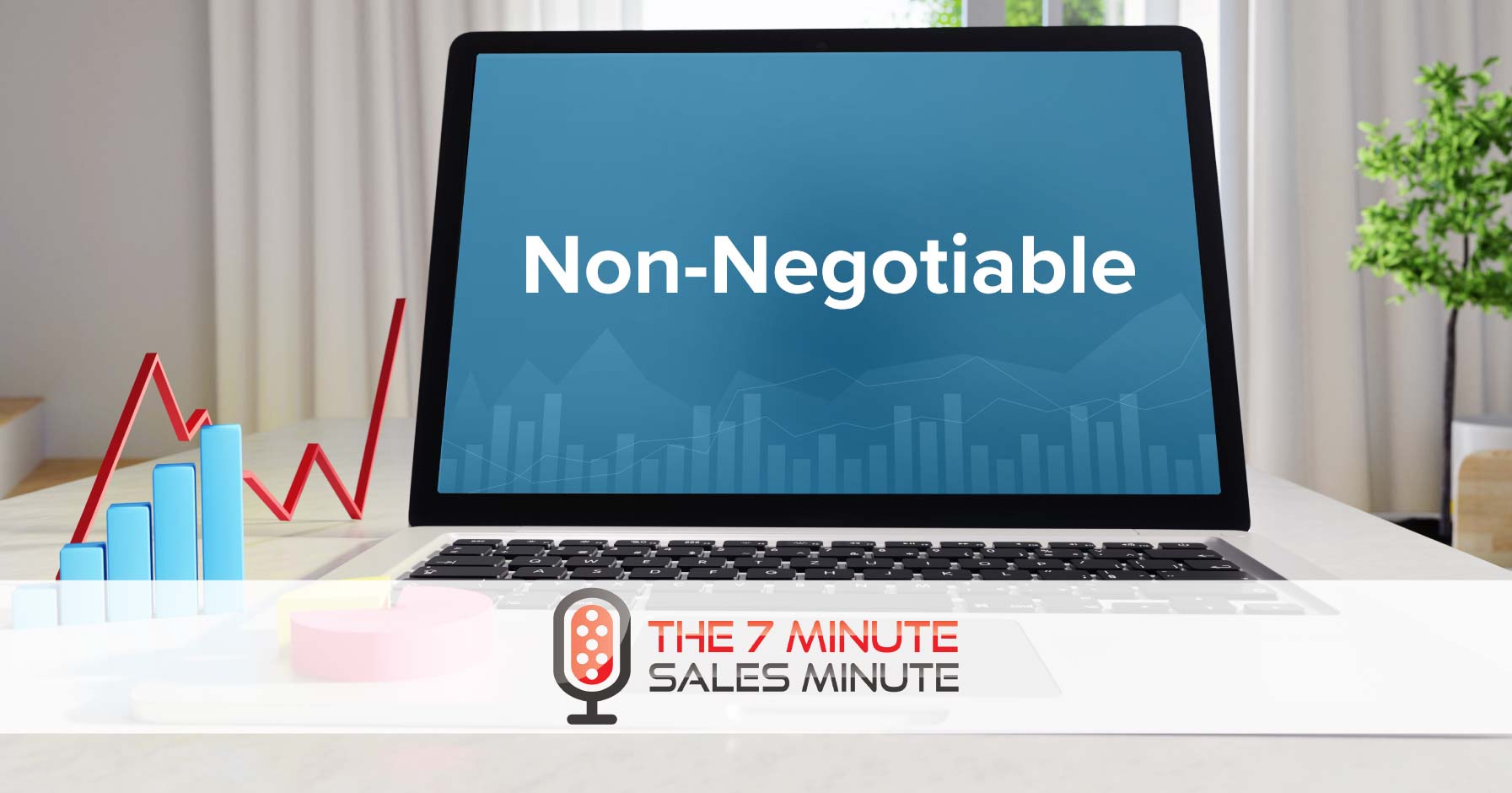
In this episode of The Seven Minute Sales Minute, Jon and Scott go in depth and how to succeed without constantly reinventing the wheel.
There are ways to take advantage of different avenues in order to get your message out there and make it stick.
Read the transcript
Jon: I’m Jon Dwoskin.
Scott: And this is The Seven Minute Sales Minute.
Jon: Welcome, everybody.
Scott: Good morning, Jon.
Jon: Scott, good morning. How are you?
Scott: I’m doing great today, man.
Jon: Me too. I got some coffee, my water. I’m ready to go.
Scott: That’s good.
Jon: Scott and I were talking and we thought we’d want to talk to everybody today about how we can reprocess, as salespeople, a lot of the things that we’re doing to grow our business. This isn’t like reprocessed food. This is a GMO-free zone when it comes to tips to grow your business, but there are some things that you are doing right now that you probably don’t even realize that you’re doing, that you can reprocess and make more money, have more fun, and grow your business.
Scott: Not only reprocess. We are going to teach you how to recognize these things that you’re doing and actually take advantage of them down the road as well.
Jon: Today, we don’t typically do this, but we are going to use ourselves as an example as well as clients and people that we know, because there’s some good examples that can come out of it for you to implement into your day. Let’s talk about, and staying true to our seven-minute sales number, we are going to break this down into seven parts.
Scott: Seven things for you.
Jon: Seven things. Number One: Recycle. Recycle what you’re already doing. It’s so often we see salespeople doing things and they don’t think to recycle. Scott, what are some ways that people can recycle what they’re already doing?
Scott: I’ll tell you first, one major thing and we talked about it in the last podcast, and here’s a shameless plug for the 30-Minute Sales Coach book.
Jon: Great book, by the way.
Scott: Using information and repurposing it. There’s a lot of information in that book that I might have talked about here and there in the podcast. I might have gotten a sentence here or there, but I’ve put it in the book and actually elucidated and stretched it out and actually given it a lot more meat. The same thing with blogging, with social media, anything like that. If something works, recycle it and use it in other ways.
Jon: Elucidating is quite a word.
Scott: Yes it is.
Jon: Can you define it?
Scott: It means to clarify.
Jon: I like it. If I can pronounce it again, I’m going to use it. Just talking on that point, I mean, so you’ve written this incredible book, which I know is doing really well and selling really well on Amazon. Congratulations.
Scott: It’s a free commercial right there.
Jon: Absolutely, and so you take this book, and let’s break it down for a minute. You could write a blog about each chapter and expand a topic. You could take what’s already there and come up with probably a hundred tweets from your book that then generate people from the book. You could have offshoots of different blogs that get people interested maybe in your next book. Let’s just talk about that. You could take it and talk about it on a podcast like you are right now. You could then do some video tips or you could read some of the book on a thirty second video and promote it. All these things. It’s just we want to get you all into the mindset of recycling information.
Scott: Yes. You can use it any different way, and the whole idea is if you’re selling a product such as a book or something like that, don’t give away the farm! Because you still want to sell the product, but there’s no reason why you can’t give out bits and pieces of information, again, using the book as an example, there’s no reason why I can’t have a blog post that talks a little bit about what’s in one of the chapters, and then say, “For more information go here and buy this book.”
Jon: On that note, I think, we as educators, and students, and teachers, as salespeople, it’s okay to give people a lot of free information and repurpose it and recycle it because ninety percent of what you do is telling them what to do. Your clients come in that ten percent which is those who want to hire you to teach them how to do it. Whatever it is. It doesn’t matter.
Scott: Correct. I just mean don’t give away the farm.
Jon: For sure.
Scott: Spoon-feed it and give away bits and pieces, and then make it so that they can’t actually make your book or your seminar or whatever you’re doing themselves, just by doing a Google search and finding all the different things that you’ve put out there.
Jon: Absolutely. I’ll give you one more quick example before we move on. I post a video tip of the day every single day.
Scott: Yes. You do, and they’re excellent.
Jon: Thank you very much. I’m up to almost over two hundred tips. I blog every single month and we do these podcasts regularly. What Scott and I are doing, we have taken the first two seasons of the podcast and created four eBooks out of the transcripts that we … We would take the recording, send it to Rev.com, had a copywriter and then designer create eBooks so we can repurpose the podcast in a written form which we’re going to be marketing relatively shortly. My blogs – I did the same thing. I took all my blogs and put them into multiple eBooks that are being created, and I took the tips and I’m doing something similar with that.
Again, it’s just recycling the information, and when you’re branding and marketing yourself as a salesperson, you want to recycle this information so you can stay fresh in the client’s mind, because they need to hear it different ways as well.
Scott: This hearkens back to something we had an interview on, with Mary Agnes a little while ago.
Jon: She was great.
Scott: She talked about that, where Google is the biggest search … Not Google. YouTube and Amazon are the biggest search engines out there now, so when you repurpose your information, the more different places you have it, whether it be in written form, verbal, whether it’s a transcript, people are going to find you more.
Jon: Right. Absolutely. One of the things Mary Agnes told me this, too, also, a lot of times I won’t post the video if there’s something in writing, because you want the analytics to pick it up at different times.
Scott: That’s interesting.
Jon: Yeah. All right. Let’s move onto Number Two: Repeats.
Scott: Yes. That’s easy.
Jon: Repeats.
Scott: Yeah. Repeats. What about Pete? Repeat. That’s very important because if something is working, you want to use it, but you might have used it three months ago. You can reuse it again today. That’s the big thing is, we’re putting so much content out there. When you’re doing things and something works with a client, you can do it with another client. You can do it down the road again. You don’t always have to come up with something fresh. You don’t have to be on stage doing something brand new every single time.
Jon: There’s two things there. One, bring it back and keep it on your main list, so if it’s a marketing or a branding piece, you want to bring it back because you can recycle all the old information, whatever you’re using for marketing. Two, which is what you said, I mean if it works, keep on rinse repeating it to the clients. Keep on repeating it because if it works and it’s generating you business, great. By the way, if it’s not working, stop it and find something else to repeat.
Scott: Stop doing that.
Jon: Sometimes you see salespeople who aren’t doing well and you ask them what they’re doing and they’re repeating the same horrible thing that’s not effective with their clients over and over and over again. There is a compound effect when you repeat and it works in a positive manner and in a negative manner.
Scott: Exactly. The quote I think is Einstein, “If you continue to do the same thing that you’ve always done, you’ll continue to get the same results.”
Jon: And expect different results. It’s insanity.
Scott: Something like that.
Jon: All right. Let’s talk about Number Three: Cross promote. Cross promote with people who are third parties that are not your competitors. Cross promote. I know we have clients sometimes who create newsletters and they have other clients (that they don’t compete with) write in their newsletter to kind of prop them up. It makes them look like they are branded with another company, and so it connects them to a higher perception that somebody wants to do business with them.
Scott: This is something that I didn’t even know these things still existed, but I was talking to someone about a networking group the other day. They were like, “Yeah. We don’t have a mortgage guy in here.” I’m like, “You still do that?”
Jon: Like a BNI?
Scott: Yeah. Something like, but you have to pay to be in it and all of this stuff, and I think this one was kind of a scam, but if you can cross promote with an insurance agent, you can cross promote with anything, you know, in the mortgage business.
Jon: Yeah. I would say cross promote with as many people as you can and create your centers of influence that you refer people to specifically. Cross promote to one another. You’ll generate a lot of business.
Scott: This brings us to our next one of our seven things, which is: Stick with What Works. Simply, if something works, why – we just talked about it – why change? If you’re on the phone with somebody and you have a line that works or you’re in a sales presentation, you have a line that works, it gets a laugh, or it gets the right response that you’re looking for, you can use it again with the next person. They haven’t seen the movie yet. You could just repeat the line over and over again.
Jon: I want to give everybody a recommendation, and I do this every day, and I think it is absolutely critical. It’s one of my kind of non-negotiables which we’ve talked about. It’s one of my absolutes that I do every day. At the end of every one of my work days, I document what went well as far as questions that I asked that were responded well to, questions that I asked that people really didn’t like, things that I talked about that were well received. I created and I create a deeper platform for myself so when I work with my next clients, I know what works and I know what doesn’t.
I think what happens in that scenario is people have a good line, something really, really works, but they then don’t take the time to sit and put it in writing and really think about, “All right. I’m going to create this as part of a process and a system.” Document what works for yourselves so you can rinse repeat and you don’t forget. Because you will forget. We are salespeople. We are churning and burning all the time as far as the amount of people that we’re talking to, so if we don’t document it, we’ll forget it.
Scott: Right. That actually segues right into our next thing: When something works, remember it. That’s huge. In golf you only get a certain number of clubs that you’re allowed to carry in your bag, if you’re playing real golf (not chucker golf like me). You only have a certain amount of clubs, but with what we do there is no limit to what you can have in your repertoire, so if something works, add it, and put it in that repeat mode. If you have fifty different things that work, you could repeat fifty different things. You only have to go through your bag of tricks seven times in a year. If you have a hundred or two hundred like you have with videos, literally, you could do one and a half or something. Something like that – 1.75 times you’re going through all your videos in one year. When something works, remember that it worked.
Jon: Remember.
Scott: Put it in your bag of tricks.
Jon: Remember it. Put it in your bag of tricks. Journal it. Keep it documented. Keep it in Excel. Do something. Document it. Moving onto our next piece is: Study what works for other people.
Scott: Right. Absolutely. If something works for Apple, Microsoft does it (or they try to). If something works for Amazon, Google does it. Everyone shares with each other – or steals from each other, I should say. What did Steve Jobs say? Let’s butcher another quote here. “Great artists steal.”
Jon: Absolutely. I mean why reinvent the wheel. If you just look at Facebook Live. I mean YouTube is doing their best to now do a live streaming. From Snapchat, from Instagram, I mean all of the social media platforms are copying the video piece of what they do.
Scott: Right, so if something works, there’s a reason it worked for somebody. You can use it. Don’t copy and we never want you to plagiarize or steal.
Jon: No. Absolutely not.
Scott: But really if something is working for somebody, why not try it? It works.
Jon: I steal things all the time and then I make them my own, and there’s no shame in that. If you really look at where … I have no problem saying, “Hey, I learned this from X and then I made it my own, and then I made it my own voice.” If you look back at most people who are successful, they’ve all done the same thing.
Scott: There’s only so many things in the world that you can actually do. The last thing we had here is: Take advantage of different media, and what I mean by that is if something is in one format, use it in another format. Repurpose it like Jon talked about. If you have a video you can repurpose it as something written. If you have a news item you don’t just want to tweet it, you want to put it on your Facebook; you want to put it on your LinkedIn; you want to put it everywhere. Because you want to carpet bomb the world with your message.
Jon: With analytics today, you know, some people will say, “Well, I don’t want to post it on Facebook, and then LinkedIn, and then Instagram, and then this or that.” You got to take into consideration that the analytics of all of these social platforms are changing every single day, so just because you post something on Facebook it doesn’t mean that your whole list is going to see it. Just because you post it on LinkedIn, doesn’t mean that everybody is going to see. At the pace at which things are moving and the news content that keeps on changing on a minute by minute basis on these platforms, your audience may not be on it at a certain time, so you got to just use all the platforms effectively and rinse repeat on all of them, or only ones that are effective for you.
Scott: Yes. Exactly. Jon, that was seven things. Do you believe it?
Jon: I can’t believe it.
Scott: It’s been fourteen minutes. The Seven Minute Sales Minute. You got almost fifteen minutes for your listening dollar today.
Jon: That’s great. All right, well I think that let’s try to cap it off at fifteen, and I appreciate everybody listening and taking time to hopefully get some nuggets to grow your business.
Scott: Yes. Thank you for listening again, and don’t forget to buy my book. Thanks a lot.
Jon: Have a great day. Thanks everybody for listening. No excuses. It’s time to put everything you listened to into action. Stop lying to yourself. Stop listening and doing nothing with this information. Take this information, implement it into your day, grow your business, grow your sales, make more money, have more fun, have a better life. Period. The end.
Scott: What he said.




